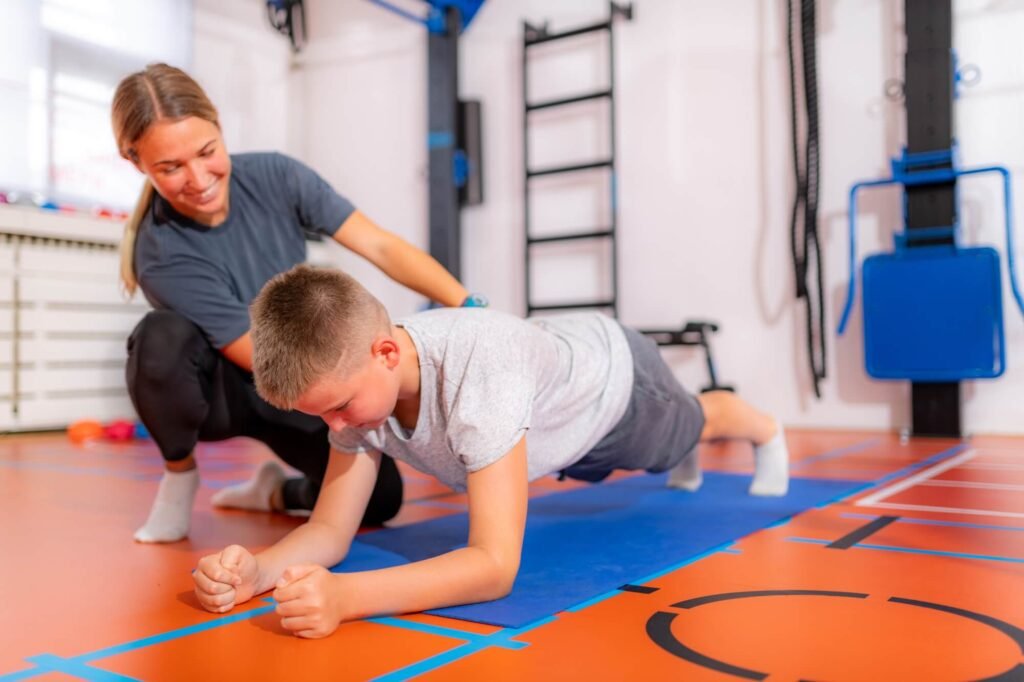COURSE OVERVIEW
Great coaching extends beyond physical training—it shapes young athletes into confident, well-rounded individuals prepared for success in all aspects of life. This course empowers coaches to take on the role of mentor and motivator, using sports as a platform to instill invaluable life skills.
Participants will explore how to integrate critical 21st-century competencies, including problem-solving, communication, collaboration, and creativity, into their coaching practices. Additionally, the course emphasizes the importance of fostering core values such as integrity, teamwork, perseverance, and sportsmanship to guide young athletes in their personal growth.
By the end of this program, coaches will be equipped with strategies to nurture cognitive, emotional, social, and physical development, ensuring a well-rounded and disciplined approach to coaching. This course is designed for those who seek to make a lasting impact on their athletes—both on and off the field.
INSIGHTS
- Understand and embody the role of a coach as a mentor and motivator in fostering lifelong success beyond the classrooms.
- Promote critical 21st-century skills, including critical thinking, communication, collaboration, and creativity, through sports.
- Model values such as integrity, teamwork, perseverance, and sportsmanship to inspire young athletes.
- Integrate cognitive, emotional, social, and physical development strategies into coaching practices.
- Cultivate a disciplined approach to mind and action, ensuring children grow strong and well-rounded for lifelong success.
- Eligible for UTAP claims
- Upcoming Intake: TBC
9AM-5PM - Course fee:
Regular: S$420
COURSE DESCRIPTION
This dynamic course redefines coaching as a holistic and transformative process. Participants will gain insight into how sports can be leveraged to develop well-rounded individuals who excel not just in athletics but in life. Through interactive discussions and practical applications, coaches will learn to incorporate cognitive, emotional, social, and physical development strategies into their training methods.
The curriculum highlights the role of a coach as a mentor, fostering essential 21st-century skills while reinforcing values such as integrity, perseverance, and teamwork. A strong focus is placed on cultivating discipline in both mind and action, equipping young athletes to navigate challenges with resilience and confidence.
By the end of this course, participants will have the knowledge and tools to inspire, guide, and empower young learners—transforming sports coaching into a meaningful vehicle for lifelong success.
WHO SHOULD ATTEND
This course is perfect for those who believe in the power of relationships to transform learning and development. Ideal for:
- Youth Sports Coaches aiming to build strong relationships with children and parents.
- Physical Education Teachers seeking to improve behaviour management and parent communication.
- Recreational & After-School Program Leaders who want to create harmonious and collaborative learning spaces.
- Child Educators & Trainers working with diverse personalities and family dynamics.
- Aspiring Coaches looking to strengthen their communication and conflict resolution skills.
- Parents & Caregivers who want to better understand their child’s behaviour, manage difficult situations, and foster open, constructive communication.

Module 1:
Understanding 21st-Century Skills
- Define 21st-century skills and their relevance to child development and success in a modern world.
- Identify key competencies such as critical thinking, creativity, collaboration, and communication.
- Create scenarios and activities that promote reflection, responsibility, and autonomy in children.
- Implement strategies to teach conflict resolution, accountability, and active listening through sports.
Module 2:
Teaching Sportsmanship
- Understand the core values of sportsmanship, including respect, teamwork, integrity, and fair play.
- Develop strategies to teach children to respect rules, opponents, and officials, regardless of game outcomes.
- Foster grace in winning and losing, encouraging resilience and a positive attitude in children.
- Design and execute lesson plans and role-play activities that instill sportsmanship behaviors.


Module 3:
Building Trust Through Sports
- Recognize the importance of trust in building strong coach-student and coach-parent relationships.
- Develop key behaviors that promote trust, such as clear communication, empathy, and consistency.
- Practice role-playing scenarios to address common challenges in fostering trust.
- Incorporate team agreements and reward systems to reinforce positive behavior and collaboration.
Module 4:
Role of Coaches in Holistic Development
- Embrace the multifaceted role of a coach as a guide, counselor, and cheerleader for young athletes.
- Provide emotional resilience training, teaching children to “fail forward” and celebrate small successes.
- Create a safe, supportive environment that boosts self-confidence and nurtures self-worth.
- Incorporate positive reinforcement and reflective practices to enhance learning and engagement.


EDUCATOR
Cheng Su Yi
Transformative. Collaborative . Empowering A dedicated educator and leader with over nine years of experience in curriculum development, program implementation, and fostering social-emotional well-being in children. My expertise in integrating evidence-based frameworks such as “Language of Virtues” and “7 Habits of Happy Kids” into school ecosystems has earned me accolades like the MOE Service Excellence Award (Silver) and multiple Outstanding Contribution Awards. I excel in leading multidisciplinary teams, building stakeholder partnerships, and enhancing practitioner competencies to deliver high- quality outcomes for children and families. My proven ability to design and evaluate training frameworks, coupled with my commitment to fostering reflective practice and professional growth, makes me uniquely suited to drive impactful programs and initiatives in support of children’s development.





